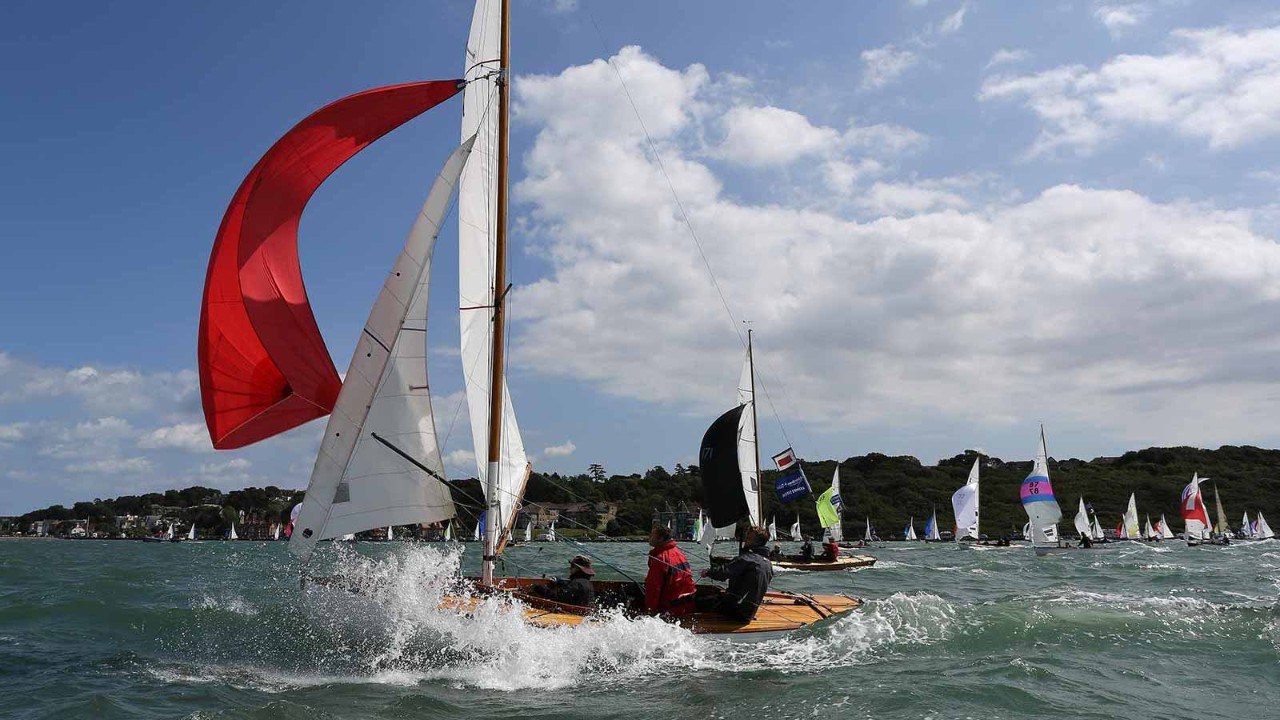
The world of competitive sailing received a boost last month when Visit Abu Dhabi, the emirate's tourist board, injected much needed cash into Cowes Week, the oldest and largest sailing regatta in the world.
‘The agreement is a huge boost after we lost a lot of money in 2020’
The multiyear sponsorship deal will also see the introduction of a winter version of the regatta to the Gulf in January 2023. The arrangement secures the finances of the UK event, which takes place off the south coast of England annually in August.
The deal is of huge significance for Cowes Week in the wake of the cancellation of the 2020 event (see panel, ‘A huge boost’), which cost the organiser Cowes Week Ltd about US$240,000 and was the first time the regatta hadn’t been held (other than for a world war) since the first edition in 1826.
Sponsorship is vital for competitive sailing, both for events and competitors. Typically, sponsorship deals with The Ocean Race (formerly known as the Whitbread Round the World Race) start at a fee of approximately US$1.8m across a three-year race cycle. At the top end of the scale, Sir Ben Ainslie bagged a US$153m America’s Cup sponsorship with chemical giant INEOS in 2018.
Gulf regatta
While specific details about the value and length of the Abu Dhabi/Cowes Week multiyear sponsorship deal have not been released, planning for the linked competitive sailing event in the Middle East is underway.
Cowes Week Ltd has joined forces with events company Global Mission in Abu Dhabi to launch the Cowes Week winter regatta from January 2023.
It will be the first time the British sporting event takes place overseas and adds to Abu Dhabi’s growing reputation as the region's sports capital.
The winter competition will host eight races and is expected to attract many of the world’s best sailors.
Organisers believe the week-long event will generate around 25,000 room nights in Abu Dhabi hotels during the four weeks surrounding the event – a welcome uplift for the tourism industry, and are hopeful of making it a permanent fixture in the UAE city.
The deal between Visit Abu Dhabi and Cowes Week Ltd had been close to completion before the pandemic struck but was put back as the world responded to the Covid threat.
‘We were originally due to sign the deals just 24 hours after Covid restrictions were introduced in 2020,’ says regatta director Laurence Mead.
Cowes Week by numbers
1826
Year the first recognised Cowes Week took place, with three days of racing in the waters of the Solent, the strait between England and the Isle of Wight
1,036
Number of entries to Cowes Week 2005, the largest ever, involving more than 8,000 sailors
100,000
Average number of visitors who watch the regatta and the firework display on the final Friday of the week
800
Cannons fired to mark race starts and finishes during an average week
1851
The year the schooner America won a sailing race around the Isle of Wight – the origin of the America’s Cup competition, in which teams compete for the oldest trophy in international sport
‘As an organisation, we aim to break even or make a small profit’
‘A huge boost’
The latest available Cowes Week Ltd accounts cover the year to 31 October 2020. They show net liabilities of £202,550 (US$242,188), up from £7,522 (US$8,994) the previous year, as a result of the Covid cancellation in 2020.
To ease the pressure, the company made a number of staff redundancies and took out a £45,000 (US$54,000) bank loan.
Regatta director Laurence Mead says: ‘We are in a difficult financial position, and a sponsor was important for our future.
‘As an organisation, we aim to break even or make a small profit. The [Abu Dhabi] agreement is a huge boost after we lost a lot of money in 2020.
‘This deal gives us financial security leading into 2026 [the regatta’s bicentenary], and we can now look to add members to the team again, as we have the resources.’
Holed by Covid
The news is also a welcome fillip for the global sport, which, like others, has suffered under the long, enforced break caused by the pandemic.
The sport’s governing body, World Sailing, which is recognised by the International Olympic Committee (IOC), had to focus on cost reduction in navigating its way out of a cashflow crisis chiefly brought about as a result of the Covid-induced postponement of the Tokyo 2020 Olympic Games to 2021.
David Graham, World Sailing’s chief executive, admits that without financial assistance from the IOC the federation would have gone into liquidation following the postponement of the Tokyo Games.
The body received a loan of about US$2.6m as part of the IOC's support package to offset the financial impact of the decision to delay the Olympics due to the pandemic.
The London-based body had earlier forecast an Olympic dividend of US$14.5m from the Tokyo Games, representing some 47% of its expected quadrennial revenue.
Olympic bounty
According to World Sailing forecasts for 2021 to 2024, income for each of the three financial years 2021, 2022 and 2023 will include 33.33% of the Tokyo Games distribution. The following year, 2024, will include 25% of the expected distribution for the 2024 Paris Games, currently forecast to have the same revenue levels as the Tokyo Games.
The money comes from the IOC, based on a system where sports are ranked in five tiers (headed by aquatics, athletics and gymnastics in tier one), according to their audience and size, and revenue distributed to the sporting federations accordingly. As sailing is a tier-four sport, alongside the likes of canoeing, fencing, handball and wrestling, World Sailing received US$11.6m from the IOC for the 2016 Rio Games.
The next Olympics may be some way off but in the meantime, with the third season of the Sail Grand Prix continuing from July to November – prize money US$100m – there's plenty of competitive sailing to look forward to in both Europe and the Middle East. Look out for the UK event at the end of this month, with the Denmark, France, Spain and Dubai editions to follow.


